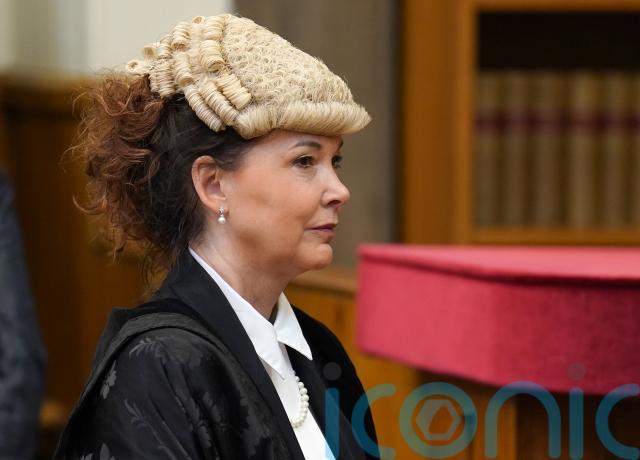
MSPs have raised concerns that Scotland has “fallen behind” the rest of the UK on how post-mortem examinations are carried out.
It came as a Holyrood committee quizzed Lord Advocate Dorothy Bain KC on the issues in a petition from a bereaved mother, who is campaigning for changes in the system following the death of her son.
Ann Stark said she was “horrified” to discover 25-year-old Richard’s brain, throat and tongue had been removed during a post-mortem exam after he died suddenly at home in 2019.
In her petition, she is calling for post-mortem examinations to only be carried out with the permission of the next of kin, and for brains not to be routinely removed during them.
Mrs Stark also wants to see body tissue and samples taken during the process to be offered to be returned to the family as a matter of course.

MSPs on Holyrood’s Citizen Participation and Public Petitions Committee have been considering the matter, and have already heard about the system in England.
Committee convener Jackson Carlaw said “94% of all causes of death are established by use of scanning in a non-invasive procedure”.
This has “reduced the requirement for full invasive post-mortems”, he added.
Mr Carlaw noted it seems to be “more of a matter of routine in Scotland” for brains to be removed during the post-mortem examination.
Families in England are also given more choice about what happens to samples that are taken, with Mr Carlaw saying these can be returned to the family and that sometimes second funerals are held so they can be buried with the rest of the remains.
Commenting on the situation in Scotland, he said: “I just wonder if we have fallen really rather behind medical practice elsewhere in the way in which we are proceeding.”
Ms Bain said tissue samples are currently considered to be “part of the medical records of the deceased person” and any decision on returning them is for health boards.
However, she said: “A requirement to offer tissues and samples to the nearest relatives as a matter of course before the end of criminal investigation might impact on the investigation of death, it might impair the procurator fiscal’s ability to fully investigate the circumstances surrounding the death or establish a definitive cause of death.

“I am not here to advance any inhumane practice. I am here to say how I operate within the existing law.”
She stressed to the committee that decisions on whether organs are removed during a post-mortem examination, and on the possible use of scanning as an alternative, are matters for pathologists.
But the Lord Advocate added: “If it is the case that there is less invasive processes that can be applied at the stage of post-mortem, these are the ones that should be chosen by the pathologists.”
She told MSPs she recognises these are “issues of enormous concern”, but also said they have to “distinguish between the responsibility I have as Lord Advocate and the responsibility that lies within the professional body of pathologists”.
Ms Bain, however, was clear that families should not be given the final say on whether post-mortem exams are carried out.
The examinations are only ordered when it is “considered essential”, she said, acknowledging they can be “distressing” for the next of kin, and that the Crown Office and Procurator Fiscal Service will “of course take account of their views”.
But she added: “The views of the next of kin really cannot be determinative of the decision-making process around this matter.”
This is because “unfortunately, sometimes close relatives are responsible for the fatality”.
Central Scotland MSP Monica Lennon, who has championed the issue on behalf of the Stark family, said: “There is different practice that is emerging that has been in place now for a few years.
“This is an issue that really needs to go to the top of the agenda, and of course I am sure ministers in health and in justice will be very interested.”
Subscribe or register today to discover more from DonegalLive.ie
Buy the e-paper of the Donegal Democrat, Donegal People's Press, Donegal Post and Inish Times here for instant access to Donegal's premier news titles.
Keep up with the latest news from Donegal with our daily newsletter featuring the most important stories of the day delivered to your inbox every evening at 5pm.